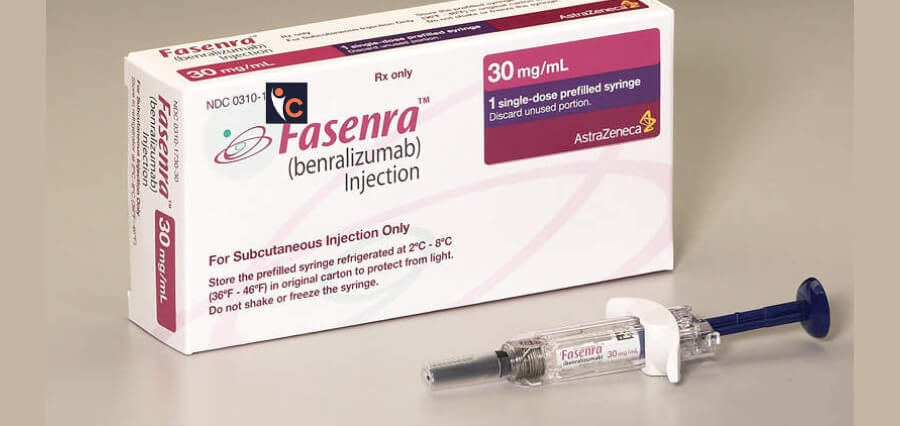AstraZeneca’s Fasenra, its injectable asthma medicine, has shown efficacy in new research that suggests that the medication outperformed the oral corticosteroid standard treatment of prednisolone when intense attacks of asthma arose. According to findings published on Wednesday, it may result in 30 percent reduction in use of auxiliary treatments during attacks of asthma and is considered an effective break point in managing this disease.
Fasenra was approved by both U.S. and EU regulators in 2017. Fasenra is a biologic antibody drug specifically designed to treat the most severe form of asthma – known as eosinophilic asthma, which begins with inflammation from a type of white blood cell referred to as eosinophils. It works by neutralizing and eliminating these cells that are vital to inflammation.
Researchers at King’s College London included 158 high-risk patients in the UK at risk of exacerbations because of asthma or chronic obstructive pulmonary disease (COPD). Results from the study indicated that when Fasenra was administered as an injection during an asthma attack, it was significantly more effective than oral prednisolone in improving respiratory symptoms. By the end of 28 days of treatment, symptom control was better among patients receiving Fasenra. After 90 days, the number of patients in the Fasenra group who experienced treatment failure was four times lower than those on standard prednisolone therapy.
Exacerbations, which include wheezing, chest tightness, and coughing, are a significant cause of hospitalization for asthma and COPD. Exacerbations can be life-threatening, and the treatment is usually repeated steroid use or rehospitalization. These new data indicate that Fasenra may become a potential rescue medication to prevent further exacerbations or hospitalizations when given either in the hospital or as an outpatient therapy.
Lead researcher of King’s College London, Professor Mona Bafadhel, said the results of the study are a game-changer for patients with asthma and COPD, diseases that cause almost four million deaths worldwide each year. “This could revolutionize how we manage severe exacerbations,” she said.
Fasenra’s Success: AstraZeneca Reports $436M Q3 Revenue Boost, Study Published in Lancet
Fasenra has so far been a source of substantial revenue for AstraZeneca, with sales generating $436 million in the third quarter, up 13% against the same period last year. The study was financed by the University of Oxford and funded by AstraZeneca. The full details of the study have just been published in The Lancet Respiratory Medicine.










